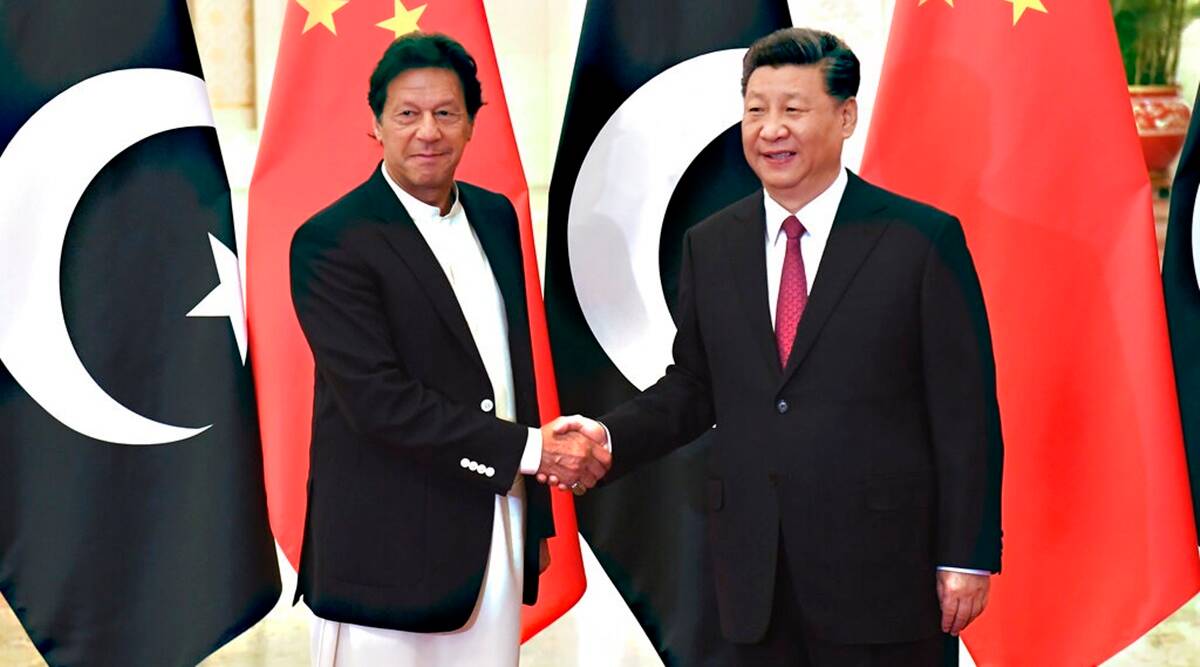
Pakistan and China, long hailed as “all-weather allies,” are experiencing significant strain in their diplomatic relations.
Beijing’s growing frustration with Islamabad’s inability to ensure the safety of Chinese nationals and projects within Pakistan has come to the fore.
This tension, marked by an unusually public diplomatic spat, reflects deeper issues in the partnership between these two nations, which have historically prided themselves on their strategic and economic alignment.
“As if Pakistan’s government wasn’t under pressure enough – with thousands of protesters on the streets and the capital Islamabad in lockdown amid calls to release former prime minister Imran Khan – relations with neighbouring China are also going from bad to worse,” according to The Interpreter, an Australia-based think tank.
Recently, a rare diplomatic dispute has highlighted Beijing’s increasing frustration over the safety of its citizens in Pakistan.
“It is unacceptable for us to be attacked twice in only six months,” stated China’s ambassador in Islamabad, Jiang Zaidong, in a notably candid reaction to remarks by a senior Pakistani politician perceived as downplaying the threat.
“President Xi [Jinping] cares about Chinese people’s security and puts people’s lives first,” Jiang added. “He especially cares about the security of the Chinese people in Pakistan.”
China and Pakistan share a relationship rooted in mutual interests, strategic necessity, and economic collaboration.
Since the 1960s, the two countries have fostered ties in various domains, including military cooperation, infrastructure development, and countering regional rivals, primarily India.
The China-Pakistan Economic Corridor (CPEC), a cornerstone of China’s ambitious Belt and Road Initiative (BRI), epitomizes the partnership.
Launched in 2015, CPEC has seen investments exceeding $62 billion, promising infrastructure development, energy projects, and trade connectivity.
In return, China has reaped access to strategic ports like Gwadar and an economic corridor to the Arabian Sea.
However, the partnership has increasingly been tested, especially as security threats in Pakistan have escalated, directly impacting Chinese interests.
Beijing’s anger stems primarily from repeated attacks targeting Chinese nationals and projects in Pakistan, particularly in the volatile Balochistan province.
Over the past few years, separatist groups like the Balochistan Liberation Army (BLA) have claimed responsibility for attacks on Chinese engineers, workers, and infrastructure.
These groups view China’s investments in the region as exploitative, accusing it of neglecting local communities while profiting from the province’s resources.
China’s patience appears to be wearing thin. The lack of tangible progress in curbing attacks on its citizens and infrastructure projects has led to unusually pointed remarks from Beijing.
In recent months, the Chinese government has explicitly voiced concerns over Pakistan’s inability to provide adequate protection.
In a rare public rebuke, Chinese diplomats criticized Pakistan’s handling of security arrangements.
This comes amidst reports that Beijing has considered withholding further CPEC investments until tangible improvements are made.
Such a stance is unprecedented, considering China’s historically cautious approach to publicly addressing issues with its allies.
The safety of its citizens has become a top priority for Beijing. Reports suggest that China has pushed for greater involvement in Pakistan’s internal security measures, including deploying Chinese private security firms to protect its assets and nationals.
While Pakistan has allowed some degree of external security presence, such measures are often met with domestic resistance, complicating the situation further.
Beyond security, economic tensions have also emerged.
Pakistan’s ongoing financial crisis has raised concerns about its ability to repay Chinese loans under CPEC.
Beijing, facing its own economic challenges post-Covid-19, appears reluctant to provide unconditional bailouts.
This has led to a more transactional dynamic in their relationship, replacing the earlier camaraderie with pragmatism.
Balochistan remains a flashpoint in the Pakistan-China relationship.
While the region is critical to CPEC, its socio-political challenges—ranging from separatist insurgency to local discontent—pose significant hurdles.
Pakistan’s inability to address these issues undermines its credibility as a partner, frustrating Beijing.
China’s growing interest in balancing its regional partnerships has also contributed to the evolving dynamic.
While Pakistan remains important, Beijing has been exploring closer ties with India, particularly in trade and technology.
This shift, however subtle, may signal a recalibration of China’s South Asia strategy, further complicating its ties with Pakistan.
On the other hand, faced with mounting pressure, Pakistan has taken steps to reassure Beijing.
The Pakistani government has promised enhanced security measures, including establishing special security forces dedicated to protecting CPEC projects.
However, systemic challenges such as political instability, economic constraints, and persistent insurgency limit Islamabad’s ability to deliver.
The Pakistani military, a key stakeholder in CPEC, has intensified efforts to secure Chinese investments. Joint military drills and counterterrorism operations have been conducted to address security threats.
Despite these measures, attacks continue, underscoring the complexity of the issue.
The growing rift between Pakistan and China raises questions about the future of their partnership.
While mutual interests remain strong, the relationship will likely see a shift from one based on unconditional support to a more conditional, performance-driven alliance.
The deterioration in Pakistan-China relations underscores the challenges of maintaining a strategic partnership amid growing security concerns.
For Pakistan, the stakes are high; losing China’s support would significantly impact its economic and geopolitical standing, while for China, the situation serves as a cautionary tale about the risks of large-scale investments in volatile regions.
While the partnership is unlikely to collapse entirely, it is poised to undergo significant recalibration, according to experts.






